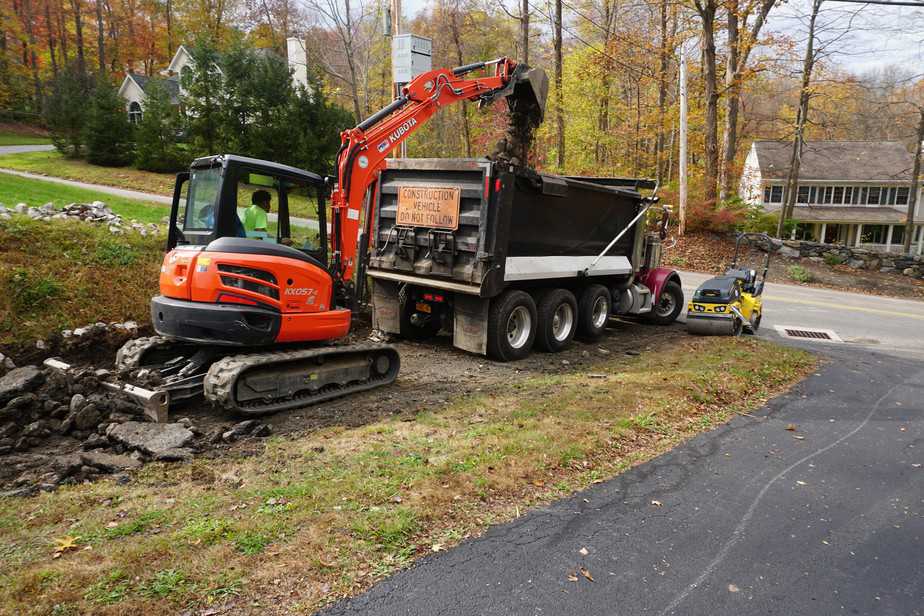Dump Truck Companies in Ohio - Dependable Dump Truck Solutions Across Ohio
Dump Truck Companies in Ohio - Dependable Dump Truck Solutions Across Ohio
Blog Article
Comprehensive Excavation Approaches: Grasping the Basics for Success
In the world of building and construction and civil engineering, the importance of reliable excavation techniques can not be overstated. The careful planning, exact implementation, and precise attention to information required in excavation projects require an extensive strategy that incorporates various fundamental facets. From preliminary dirt evaluation to the application of precaution and routine progress surveillance, grasping these core aspects is necessary for accomplishing success in any type of excavation venture. However, real proficiency lies not merely in comprehending these principles but in perfectly integrating them to navigate the intricacies of excavation jobs with skill.
Understanding Excavation Task Preparation

The initial stage of any kind of excavation job is the planning stage, where important choices are made that can considerably affect the end result of the task. Understanding the project range, timeline, and budget plan constraints is essential for developing a comprehensive excavation strategy that guarantees the project's success.
One secret facet of excavation job planning is the development of a thorough timeline that details the sequence of tasks, due dates, and landmarks. By thoroughly thinking about all these variables throughout the preparation stage, excavation tasks can be performed successfully and effectively, leading to effective outcomes - lancaster trenching.
Dirt Analysis and Website Evaluation
Performing extensive dirt evaluation and site analysis is an essential action in the prep work phase of any type of excavation task. Soil evaluation involves identifying the make-up, structure, and residential properties of the dirt at the excavation website. This information is important for recognizing the dirt's bearing ability, moisture content, and capacity for disintegration, which are crucial factors in identifying the excavation methods and devices required for the job.
Site examination goes past dirt evaluation and incorporates a broader assessment of the total site conditions. This assessment includes identifying any potential hazards, such as underground utilities, environmental issues, or unsteady terrain, that might impact the excavation procedure. By thoroughly evaluating the website, job supervisors can establish reliable excavation techniques that focus on safety and security, performance, and environmental management.
Utilizing innovative technologies like ground-penetrating radar, dirt tasting, and drone studies can improve the accuracy and efficiency of dirt evaluation and site assessment. Investing time and sources in these initial steps can ultimately save time and avoid pricey delays or complications throughout the excavation procedure.
Devices Selection and Application
Effective excavation projects count heavily on strategic tools choice and utilization to make certain ideal performance and performance. Choosing the right tools for the job is essential in making best use of effectiveness and decreasing downtime. Aspects such as the sort of dirt, deepness of excavation, and job extent play a considerable duty in figuring out the most appropriate equipment for the job at hand.

Along with choosing the suitable devices, correct utilization is vital to task success. Operators must be educated to take care of the tools securely and successfully - lancaster trenching. Routine upkeep checks and timely repair services assist stop malfunctions and make sure constant performance throughout the project
Safety Measures and Rules Conformity
In the realm of excavation jobs, prioritizing precaution and compliance with laws is extremely important to ensuring a secure and legally audio functional atmosphere. Security steps incorporate a variety of practices, consisting of carrying out complete site assessments, applying appropriate signage and obstacles, and offering adequate security training for all personnel entailed in the excavation process. Adherence to More Help laws, such as OSHA demands in the United States, makes sure that the excavation project fulfills the required criteria to secure workers, onlookers, and the surrounding environment.

Surveillance Progression and Adjusting Methods
Exactly how can project supervisors successfully track the improvement of excavation projects and adjust their approaches as necessary to enhance outcomes? Surveillance development is important for ensuring that excavation tasks stay on track and fulfill due dates. Project supervisors can utilize numerous tools and techniques to track development, such as daily report card, normal website assessments, and advanced surveillance innovations visit this site like drones and GPS tracking systems. By continually checking the job's development, supervisors can determine any kind of prospective delays or problems early on and take proactive procedures to address them.

Final Thought
In conclusion, grasping the basics of detailed excavation techniques is important for the success of any kind of task. By understanding project planning, assessing soil and site problems, choosing proper equipment, abiding by security laws, and keeping track of progression, job managers can make sure a reliable and smooth excavation procedure. Carrying out these methods will certainly cause effective results and decrease possible threats or setbacks during the excavation task.
The initial stage of any excavation job is the preparation phase, where critical decisions are made that can significantly impact the outcome of the task. Understanding the job budget plan, timeline, and extent constraints is vital for creating an extensive excavation strategy that makes certain the job's success.
How can predict managers efficiently track the advancement of excavation jobs and adjust their techniques appropriately to maximize end results? By closely keeping an eye on development and being ready to adjust approaches, project managers can boost the total success of excavation tasks.
By click here now recognizing task preparation, assessing dirt and site conditions, selecting suitable equipment, complying with safety guidelines, and keeping track of progress, task managers can ensure a efficient and smooth excavation procedure.
Report this page